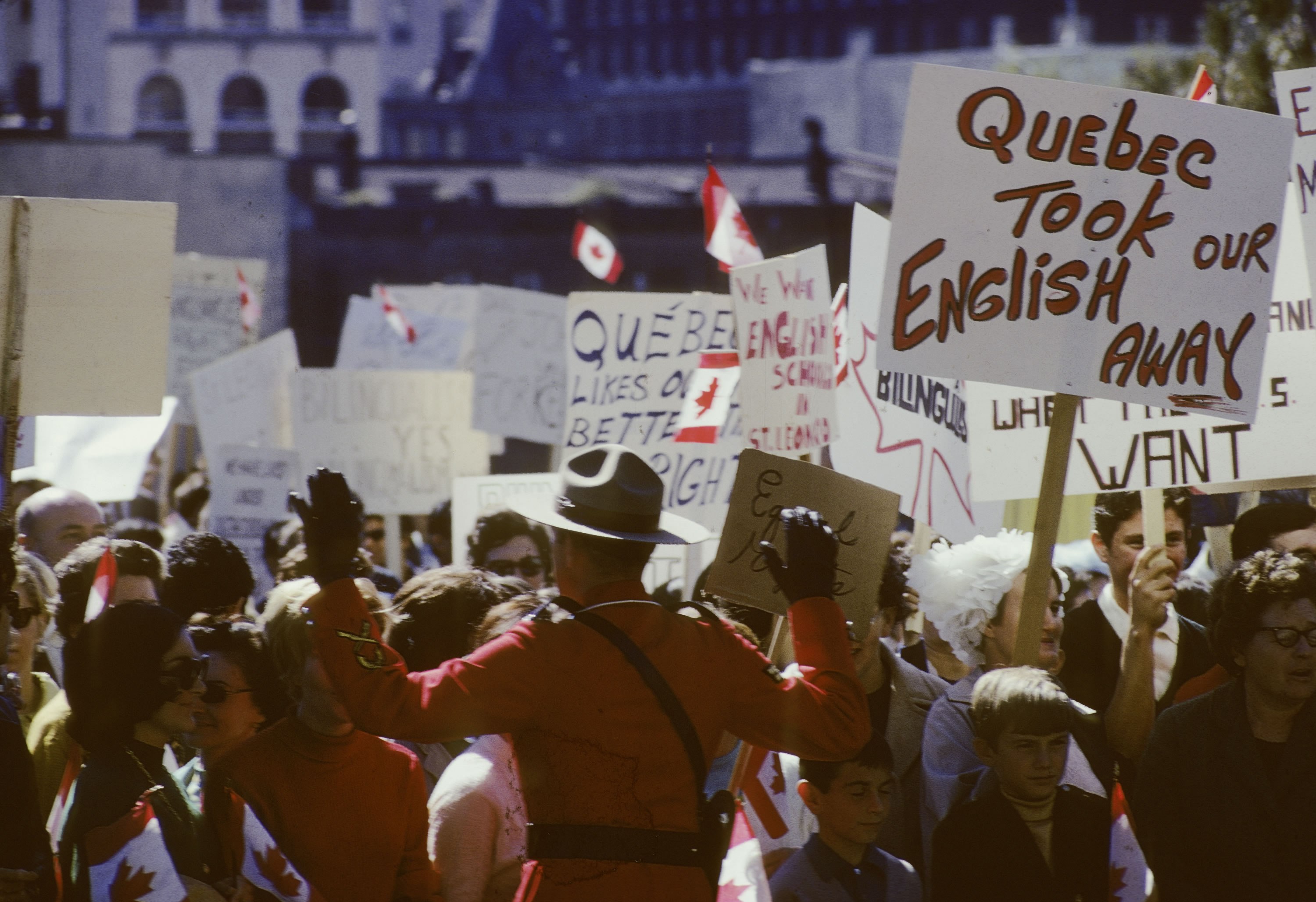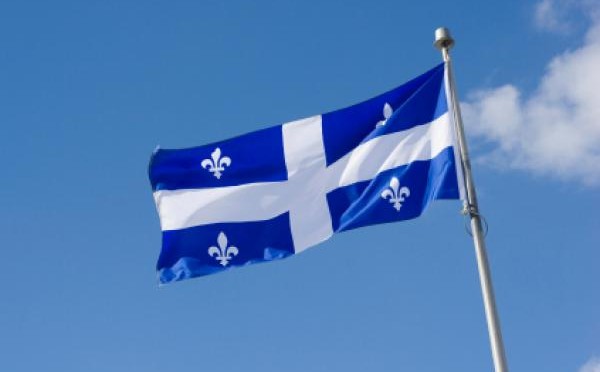Daniel S. Matthews brings us this fourth article for our Sacking of Rome Series.
It is the unexpected turns that vex empires the most. Rome did not expect Hannibal to cross the Alps, the French did not expect the dramatic events of Quiberon Bay, the British had their guns pointed the wrong way at Singapore, we were not prepared for World War III to start in Canada.
 Thought of Canada being the region where the sparks for World War III will be struck may not seem likely, but there is one area where a foreign foe could surprise the West: Quebec. If Quebec were to secede from Canada, two unsettling possibilities could occur. The first is that Canada could go to war with its wayward province. The second is that some power like China or Russia could build an alliance with Quebec. While such possibilities are unlikely, there are means of defense.
Thought of Canada being the region where the sparks for World War III will be struck may not seem likely, but there is one area where a foreign foe could surprise the West: Quebec. If Quebec were to secede from Canada, two unsettling possibilities could occur. The first is that Canada could go to war with its wayward province. The second is that some power like China or Russia could build an alliance with Quebec. While such possibilities are unlikely, there are means of defense.
The Canadian Civil War
If Quebec were to secede from Canada, there are several points that could spark a civil war between the two. The least likely would be national pride. There are several economic reasons that could provide the tinder for war. Quebec controls the mouth of the St. Lawrence River, and Quebec could use that control to wage economic war with Western Canada. In addition, Quebec possesses significant reserves of natural resources that currently contribute to the North American economy on a free basis. An independent Quebec would change that. Finally, Canada proper would become a split country, with a third of Canadian provinces being geographically separated from the Capital. In light of the fact that no state wants to be divided, and Canada already has several fluttering independence movements, the urge to prevent further dissolution will be strong.
While it is true that Canada does not have a large military, and Quebec has none, it is not impossible for war to break out. The Quebec separatists have used violence before, most notably with the murder of Quebec Labour Minister Pierre Laporte, and it would be easy for a semi-independent Quebec to buy arms on the international market.
If Canada did get involved in civil war with Quebec, there are several options open to both sides if the war drags on. Canada could invoke Article 5 of the NATO treaty, which could split NATO as France has traditionally expressed support for Francophone Quebec. It is unlikely Britain would be unconcerned with a core Commonwealth state being embroiled in civil war; especially depending on how the vote for Scottish independence goes this year. The United States would be committed, as they are deeply intertwined with Canada at every level.
States like Russia, China, or Iran could use the distraction of a civil war in the very center of the Anglosphere to press their boundaries with the Western Alliance. Furthermore, they could start supporting the Quebec rebels, either directly or through third party means. If the war was presaged by an internationally recognized referendum, then Russia or China could take the position that they are upholding international norms, and paint the Western states in a negative light. Attempts at arming the rebels or openly supporting them would directly threaten the fundamental security of the United States, as it would provide a foothold on the continent from which hostile states could threaten the United States.
The Bear and the Dragon in Quebec

While the first scenario of a successful Quebec independence movement immediately descending into world war is unlikely, the far more dangerous one of an independent Quebec making allies with states hostile to the West is possible. An independent Quebec would have the full ability to make alliances with foreign powers, and it is unlikely they would be readily welcomed into NATO, NAFTA, or other treaties with the Western powers. Canada would put pressure on any attempts to allow Quebec a seat at the table, and European countries would be wary of admitting Quebec, as it could fuel separatist movements within their own countries.
In addition, the United States would not want the possibility of Canada dissolving, even if most of the providences would likely join the United States. This method of amalgamation would be undesirable, if for no other reason than there is no guarantee that each section of Canada would join the US, and a unified Canada is better for the US than a series of states on its northern border. The dissolution of Canada could also embolden separatist movements in the United States.
Given the internal danger to Western countries an independent Quebec would present, it is likely that Quebec would be forced to look for friends elsewhere. Russia and China are the most likely candidates. Both countries would be interested in the natural resources of Quebec. China and Russia would also both enjoy the prospects of helping to develop Quebec’s Arctic resources. In addition, the possibility of a military alliance with Quebec would present an opportunity not present since Alaska became part of the United States; a land connection to the United States.
Right now the Anglosphere is protected by its island status, with no major hostile powers sharing a land border with any member. An independent Quebec would be courted by hostile powers to allow such a chance thought. Russia would view it as retaliation for NATO expanding into the Baltics, Poland, and developing close relations with Ukraine and Georgia. China would view it as a chance to have a mirror for the US alliances in China’s First Island Chain, with the added bonus of a large land connection to the American heartland, as opposed to the slender one that the US has against China on the Korean peninsula. The presence of a near-peer competitor with bases on the North American heartland would greatly reduce the flexibility of Western countries as they exert their influence on the world. Such a situation would be more bothersome to the United States and its allies than the Zimmerman telegram of a century ago, or the presence of Soviet missiles in Cuba half a century ago. It would have the same effect as Germany’s race to rival Britain on the high seas before World War I.
Possible Western Responses
Despite the perils presented by an independent Quebec, there are steps that the US and its allies can take to mitigate the dangers. The easiest remedy would be to continue the integration of the US and Canada, so that Quebec does not have economic or cultural incentives to break away. In addition, the West should focus more on promoting its unifying cultural values internally to provide less fuel for separatist movements. The US and Canada should also do more to encourage English proficiency, to increase the bonds of unity within and between both countries.
Internationally, the West should focus less on supporting the forms of Western states, elections being a key issue, and more on cultural reforms such as the acceptance of the loyal opposition, freedom of the press, and the like. Encouraging every group that wanted its own state did not work well for the peace, freedom, and stability of Europe from 1815 to 1939; it is not going to work well elsewhere. Such an approach would help cement the cultural idea that it is undesirable for states to break up along ethnic lines.
Finally, if Quebec does become independent, the West must make every effort to keep them within the Western sphere of influence. The United States should immediately offer closer association with the rest of Canada to stress the message of unity. An independent Quebec can be offered membership in the trade agreements that the Western nations have with one another and limited military exchange. Alternatively, a Canadian confederacy could be proposed where Quebec has almost total control over domestic affairs, but for international relations, it would still be part of Canada.
Militarily, Quebec already has more ties with Western countries, as they have served in the unified Canadian armed forces since that country was formed. Quebec citizens have served alongside the armed forces of other Western nations and have developed close ties; therefore, they would likely want to maintain those bonds. This should be encouraged.
As a final point, if hostile foreign powers do make inroads to an independent Quebec, the US should step up integration with its allies militarily and economically so to prevent further wedges being driven between the parts of the alliance. Alliances are easier to break apart than unified countries, and neither Russia nor China would want to face a unified power stretching from Japan to Eastern Europe.
Lieutenant Daniel S. Matthews is currently assigned to Marine Corps University, preparing to take over the role as Naval Gunfire Liaison Officer for III MEF. He has served in a wide range of sea and shore billets. LT Matthews is a native of Warrenton, Virginia, and graduated from Old Dominion University in 2007.


Interesting scenario but I would disagree with the statement that the “least likely [cause of the war] would be national pride.” Actually, in Quebec’s case, that would be the most likely. Historically, Quebecois have seen themselves as separate from Anglophone Canada and when the Parti Quebecois took control in 1976, they immediately encouraged French as the official language (though it was only the dominant language.) In the hope of forming its own country, the provincial government building was called the “Assemblie Nationale” (National Assembly, not Provincial Assembly.) The separatists going back to WWII saw themselves aligned not with the allies but their French forebears. For example, about twenty years ago I was researching the issue at NARA/College Park and read the State Dept and OSS reports from Canada which discussed how the Quebecois were opposed during WWII of allied bombing in Normandy and France as a whole. Growing out of the alleged “Iron Guard” movement and later in the post-WWII environment, the FLQ took decades to fully emerge as a terrorist organization culminating in the October Crisis of 1970 when Canada clamped down on the province. Since the PQ’s loss of the 1995 referendum vote on separation, the PQ has diminished in its role and, with it, chances for an independent Quebec.
Hold on…
– Where exactly do you prove that Quebec is now somehow more likely to secede than in the past? As noted above, separatism has lost steam over the last 20 years
– Where do you prove that an independent Quebec would align with states hostile to the US or Canada? I suppose it would be bad for Belgium to ally itself with al Qaeda, but that doesn’t seem likely to happen either. Also, things are going pretty good right now in terms of US-France relations…not really clear why there has to be geopolitical rivalry between the Anglosphere and Francophonie.
I got the feeling that it wasn’t so much that it was likely to happen, but that it is an interesting tool for “what if” thinking. From everything I hear, the independence movement is all but dead.
As for aligning with Russia… maybe a smidgen of a chance if they wanted to “do something with the Arctic”. And I do realize that’s a 90% useless answer.
Matthew: the separation movement may not be dead, but it is in a tail spin at the moment. There are demographic reasons for this (immigrants to the province are not inclined to the separatist narrative; indeed, separatism with its emphasis on “pur laine” aspects of Quebecois culture actually discourage immigrant participation. Secondly, young Quebecois are more economically successful within the present framework than their parents and grandparents were with the English dominated Quebec economy of the 1940s and 1950s). The Parti Quebecois was devastated in the recent provincial elections and the federal Bloc Quebecois is also suffering from electoral downturns. The present leaders of both parties are tone deaf and refusing to acknowledge the shifts in the political environment. Even former leaders like Gilles Duceppe and Lucien Bouchard have disavowed the present leadership.
All that said, as a “think piece” it is an interesting case. I think that it would be highly unlikely that a Sovereigntist government would turn towards either Russia or China as a client. Foremost, it would directly conflict with the centre left inclinations of the province’s electorate. Quebec is the most European of regions in North America and its politics are more like those of France. It is difficult to imagine why Quebec would engage any of these powers outside of purely economic reasons.
While relations with the rest of Canada would likely remain hostile, I agree that military action would be unlikely. Control of the Gulf of St. Lawrence would pose some problems, but the extensive rail connections through the US ensures that the economy of Canada would not be influenced by the loss of maritime traffic along the St. Lawrence seaway. Indeed, the largest amounts of trade transit the bridges over the Niagara River and the in the Detroit-Windsor-Sault Ste. Marie area.
Last, the whole issue of a Russian lodgement in the Arctic is also unlikely. There are extremely poor communication route between the Canadian Arctic (especially via Quebec) and the rest of North America. Furthermore, most of that geography is under the control of the territory of Nunavut, not Quebec. The strategic value of a military presence in Northern Quebec is highly debateable. The Russians have better access to their own Arctic resources than Canada has to its own, they would inevitably face an indigenous insurgency (which would definitely also be a problem for Quebec in the event of separation – indigenous peoples point out that Northern Quebec was given to the province only in the early part of the 20th century and they have no desire to be part of an independent Quebec). Last, the maritime traffic through the Northwest Passage will be negligible even under the most optimistic projections for shrinking ice coverage.
All in all, an interesting thought piece, but not a very probable one!
Actually there was some precedent in Quebec. One of the FLQ members was George Schoeters [sp?] who was Belgium. There were both ties to Cuba and some supporters in France. They also attempted to blow up the Statue of Liberty and other monuments. I’ll check my 20 year old notes tonight but I believe they were getting help for that from one of the more radical black liberation organizations in the 1960s.
Actually there was some precedent in Quebec. One of the FLQ members was George Schoeters [sp?] who was Belgium. There were both ties to Cuba and some supporters in France. They also attempted to blow up the Statue of Liberty and other monuments. I’ll check my 20 year old notes tonight but I believe they were getting help for that from one of the more radical black liberation organizations in the 1960s.
The author does not appear to have a sufficient grasp of the political and demographic realities in Quebec that, generally speaking, will not allow for independence.
Since the 1995 referendum, the government of Canada has made a point of stuffing immigrants into Quebec in order to make in almost demographically impossible for Quebec to ever declare independence through democratic means.
Furthermore, the last Federal election, saw the Bloc Quebecois, which advocates for Quebec’s independence, suffer a resounding defeat; the party only held 4 of the 49 they had held since 2008. Then in this years provincial election, the Parti Quebecois, generally seen to be the provincial arm of the Bloc, was defeated by the Liberal party of Quebec. These electoral losses appear to indicate that not enough Quebecers care about independence, and are instead more worried about the province’s social and economic conditions.
In addition, the author fails to mention that in the event of independence, Quebec would have to hand over all of its “Arctic” areas to Canada, as they were bequeathed to the province of Quebec by Canada/the British (much of these areas were previously part of Britain’s Prince Rupert’s Land). This would lead to the development of a small, almost landlocked state, which China or Russia would be unable to support.
Lastly, the author exaggerates the power and scale of Quebec’s previous armed separatist movement, the FLQ. To my understanding, while the FLQ may have had a few hundred or even a few thousand sympathizers, the group never had more than a dozen or so active members. The author also fails to note that since the groups disintegration some 40 years ago, there has never (to my knowledge) been another separatist-motivated terror attack in Quebec.